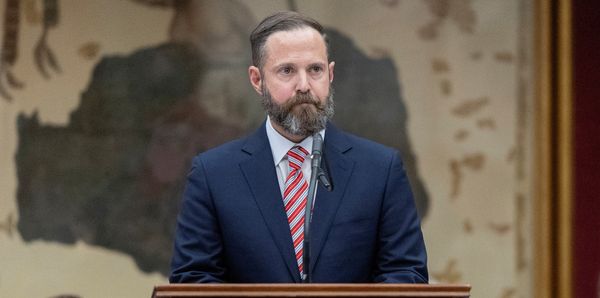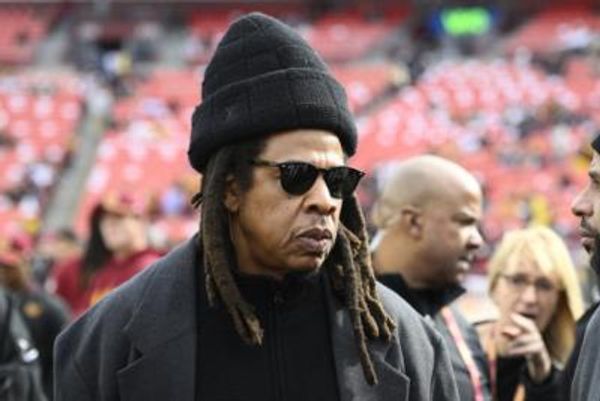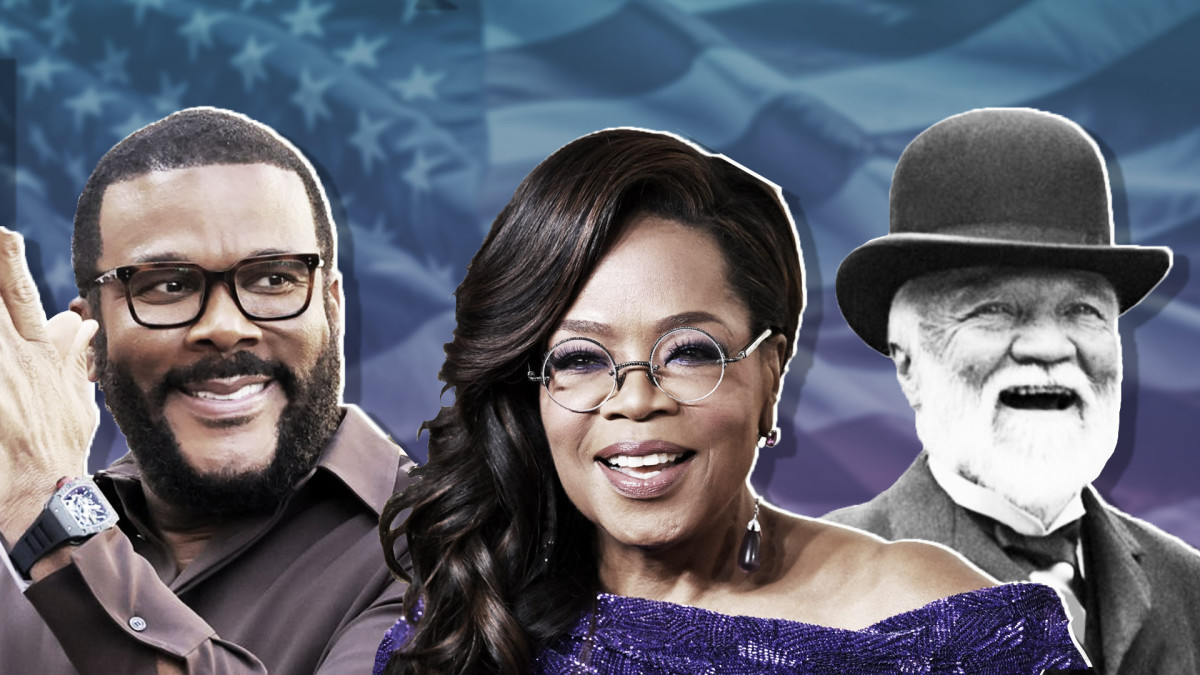
Times may be tough, but the "American Dream" is alive and well.
The idea that hard work and perseverance can pay off is embedded into the American psyche, and while it might be more difficult to achieve these days, it is still possible.
Here are 10 people whose poor, unexceptional, or even troubled pasts didn't hold them back from becoming true American success stories. Some are historical heroes, some found success in the more recent past, and some are well-known figures today.

John D. Rockefeller
- Born: July 8, 1839
- Died: May 23, 1937
- Education: A ten-week business/bookkeeping course at Folsom's Commercial College
- Source of wealth: Oil
One of six children, JD Rockefeller was raised almost single-handedly by his devout Baptist mother while his father, a traveling salesman of questionable character, was on the road. Later in life, Rockefeller learned that his father had a second wife he had long kept a secret.
Rockefeller is widely considered America's first business superstar, and the fact that his rise to legendary status came after an impoverished childhood makes his story all the more legendary.
At 16, after helping support his family by taking on small jobs and even loaning his meager savings (with interest) to neighbors, Rockefeller was hired as a bookkeeper by a produce company. His analytical skills and adeptness at number-crunching led to various other ventures.
More on personal finance:
- The surprising way your mortgage is key to early retirement
- Dave Ramsey bluntly speaks on interest rates and mortgages
- The average American faces one major 401(k) retirement dilemma
The skills honed during these days served Rockefeller well as he and a brother entered the oil business. The firm they started would later become Standard Oil, perhaps the most successful U.S. company in history due to its monopoly on the nation's oil refining and distribution.
At the time of his death, Rockefeller's net worth accounted for nearly 10% of the nation's GDP, a metric that places him as one of the wealthiest men ever.
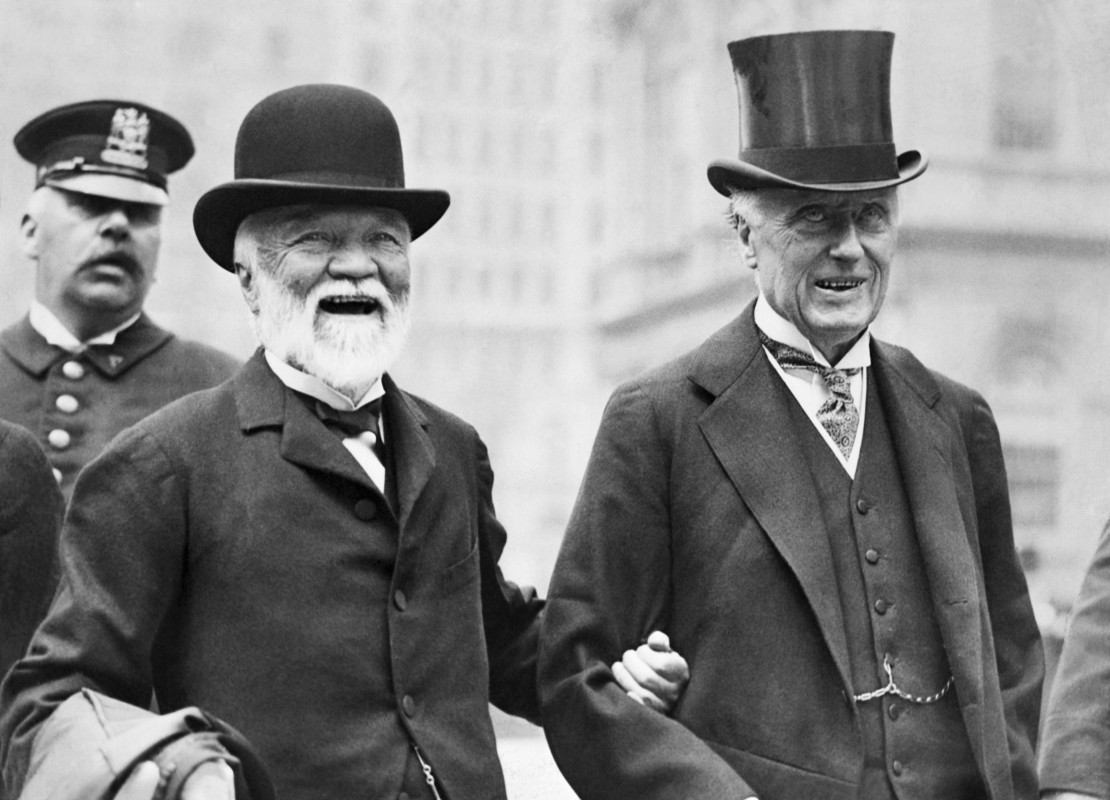
Andrew Carnegie
- Born: November 25, 1835
- Died: August 11, 1919
- Education: No formal education, but Carnegie believed it was important to spend the first third of one's life learning as much as possible and he allegedly had dreams of attending Oxford in England
- Source of wealth: Steel
The titan of the industrial age made billions in the railroad and steel industries and holds a place in history as one of the nation's greatest philanthropists (Carnegie Hall and Carnegie Mellon University are just two small pieces of his legacy) and the second-richest man of all time (behind John D. Rockefeller).
He rose to that wealth and stature after enduring an impoverished childhood that forced his jobless father to relocate his family to America amid tough times in his native Scotland. As a young man, Carnegie worked to make ends meet as a messenger for a telegraph company and in a sewing machine bobbins factory.
In 1853, Carnegie was hired by Thomas Scott of the Pennsylvania Railroad Co. as a secretary and telegraph operator, kicking off his gradual ascension to historic wealth. Earning just $4 a week, he rose, step by step, within the company's ranks. He eventually found himself in a high-profile, lucrative post overseeing military transportation efforts during the Civil War.
Scott, serving as a mentor to the young man, helped introduce him to investment opportunities, the first of which was cobbled together when Carnegie's mother fronted their family home as collateral.
Other modest investments in railroad companies followed. Success led to re-investing gains, and over time, Carnegie's holdings became substantial.
Related: How Mike Tyson went from a net worth of $300 million to broke
Oil speculation made Carnegie a millionaire on an initial $40,000 investment in an oil-rich property. Flush with cash, he turned his focus to the steel industry, which, amid postwar rebuilding efforts and the escalating pace of industrialization, multiplied his wealth greatly.
He was later a key player in the merger of several steel companies to create United States Steel, the first corporation to have a market cap of more than $1 billion.
At the time of his death in 1919, Carnegie had given away more than $4 billion of his fortune to charity.

Oprah Winfrey
- Born: January 29, 1954
- Education: Tennessee State University (BA)
- Source of wealth: Media
The one-time queen of daytime TV — who abdicated that role at the height of her popularity in order to pursue other opportunities with her OWN cable network — was born out of wedlock. Her teenage parents separated after the birth, leaving Oprah to be raised by her grandmother.
A rebellious teen, prone to running away and stealing, she would later spend time with both parents, bouncing between Wisconsin and Tennessee.
In addition to poverty, Winfrey faced other hardships. She claims to have been molested repeatedly by family members as early as the age of 9. Then, as a 14-year-old, she became pregnant and gave birth to a son who died shortly thereafter.
Related: Oprah's net worth in 2024: How the “Queen of Media” got so rich
Broadcast and media training in high school set her on the path to success. By the age of 19, she was co-anchoring a local newscast. Other TV jobs followed, leading to her hosting a daytime talk show in Chicago.
Over time, that popular show was syndicated — aided and encouraged by Chicago area film critic Roger Ebert — laying the foundation for phenomenal success and the founding of a media empire.
Adding actor, author, magazine publisher, theater producer, and philanthropist to her lengthy resume, Winfrey has amassed personal wealth of an estimated $3 billion.
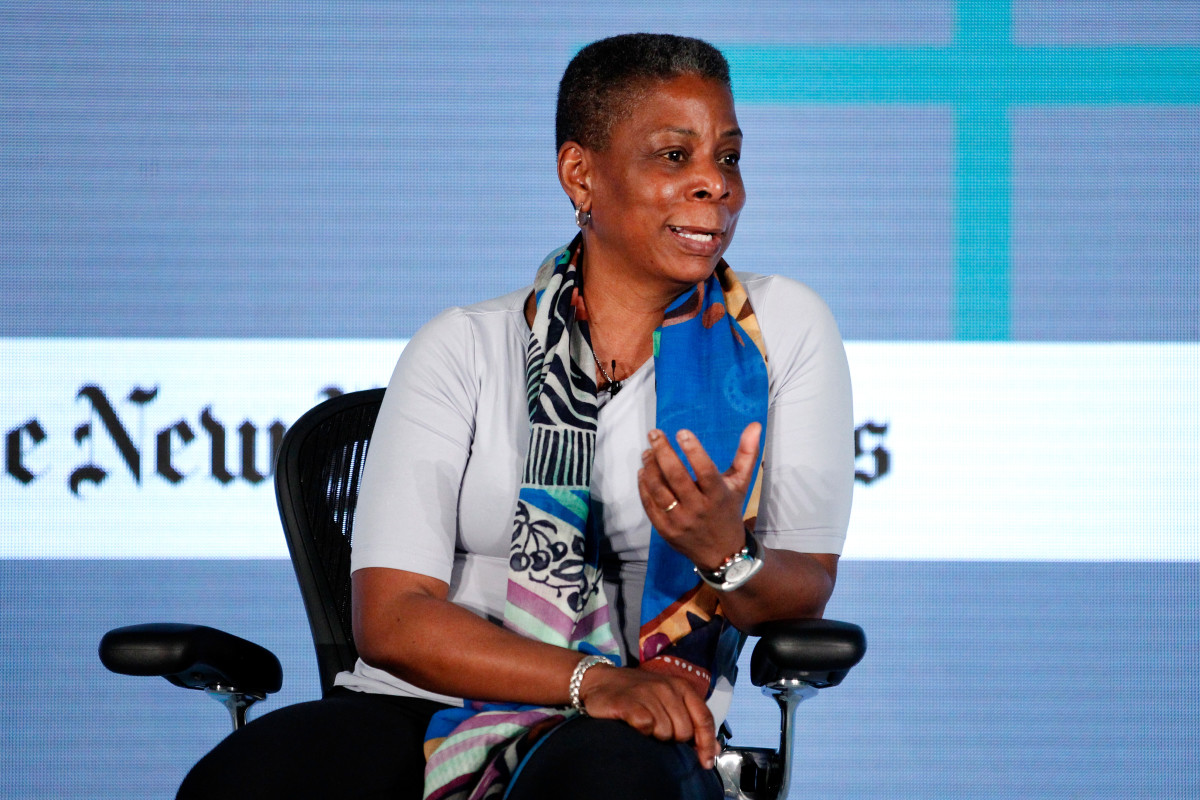
Ursula Burns
- Born: September 20, 1958
- Education: Brooklyn Polytechnic Institute (BS); Columbia University (MS)
- Source of wealth: Technology
The former CEO of Xerox (XRX) faced numerous struggles to arrive atop that company.
Raised by a single mother — a Panamanian immigrant — in a New York City housing project, she attended parochial school where she discovered an aptitude for math and figures. While she was pointed by teachers toward traditional women's careers such as nursing, she made another calculation: What high-paying work was available with the degree she knew she could get in math or science? She attended the Polytechnic Institute of New York and Columbia University with that in mind.
Her career at Xerox started with a summer internship in 1980. A decade later, her hard work caught the eye of a senior executive who offered her the position of assistant. Climbing the ladder, she would later take on the same role for then-CEO Paul Allaire.
In 1999, she was named vice president for global manufacturing and, in 2000, senior vice president of corporate strategic services, heading up manufacturing and supply chain operations. She then took on a broader role, leading Xerox's global research and product development, marketing, and delivery.
In April 2007, Burns was named president of Xerox and elected a member of the company's board of directors. She was named chief executive in July 2009 and served in that role until 2016.
Burns currently serves as vice chair of the U.S. Department of Commerce's Advisory Council on Supply Chain Competitiveness and an inaugural member of the Pediatric Brain Tumor Foundation's Advisory Board.
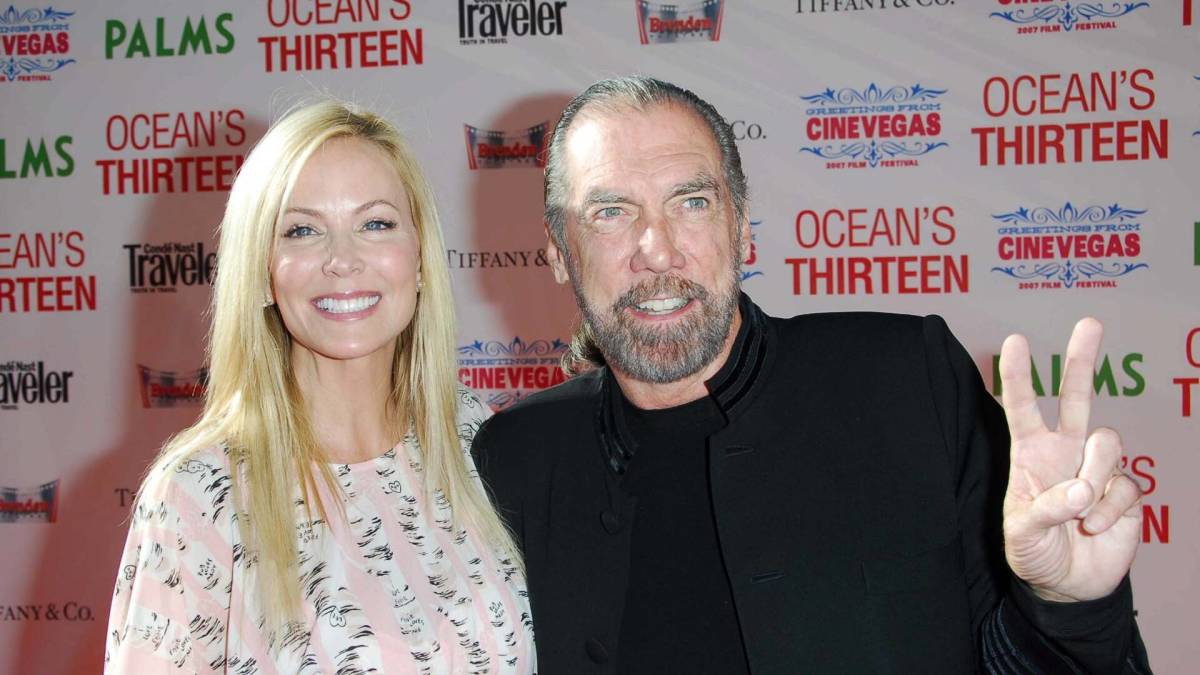
Shutterstock
John Paul Dejoria
- Born: April 13, 1944
- Education: John Marshall High School, Los Angeles
- Source of wealth: Haircare products
Dejoria sold newspapers as a young boy to support his struggling family, which was headed by a single mother, but poverty forced him into the care of a foster home in East Los Angeles anyway.
Things did not seem to be going in the right direction: He ran with a street gang during school, and joining the U.S. Navy after graduation didn't seem to put him on the path to success. When dental school didn't work out because he lacked tuition money, he went into sales, trying encyclopedias, copying machines, insurance, medical linens, and advertising space.
He landed at hair care products brand Redken Laboratories in 1971 and also worked for two other beauty companies, earning well but stymied in terms of professional advancement.
In 1980, Dejoria brashly decided to start a Redken competitor. With a mere $700 in borrowed money, he partnered with long-time industry acquaintance hairdresser Paul Mitchell and founded the hair care product company John Paul Mitchell Systems. The business, at which he serves as CEO, drew roughly $1 billion in revenue in 2023.
Dejora has expanded into other avenues as well, including tequila giant Patron, and is a founding partner of the House of Blues nightclub chain.

Jay-Z
- Born: December 4, 1969
- Education: George Westinghouse Career and Technical Education High School, Trenton Central High School
- Source of wealth: Music
Like many rappers, Jay-Z — birth name Shawn Corey Carter — rose to success from a "hards knock life," as the Orphan Annie song goes, a track he sampled in one of his biggest hits.
Raised in a Brooklyn housing project, he gained local notoriety as a freestyle rapper and gathered enough of a following that he decided to try his hand at professional recording. Rejected by major labels, however, he and two partners founded the independent label Roc-A-Fella Records in 1995.
Related: Jay-Z's Net Worth: How the world’s richest musician keeps amassing wealth
In 2004, Jay-Z was named president of Def Jam Records, and after disputes led his initial partners to sell their interest, he took sole control of Roc-A-Fella Records. A multimillion-dollar deal with Live Nation (LYV) led him to step away from Def Jam in 2009.
Other entrepreneurial efforts — among them a clothing line, chain of sports bars, branding position with Budweiser (BUD) , and part ownership of the NBA's New Jersey Nets — have solidified his success in business as well as hip-hop.
The ventures have paid off significantly over the years, and he now has an estimated net worth of $2.5 billion in part due to his savvy decision to retain possession and sole rights to his catalog's master tapes.
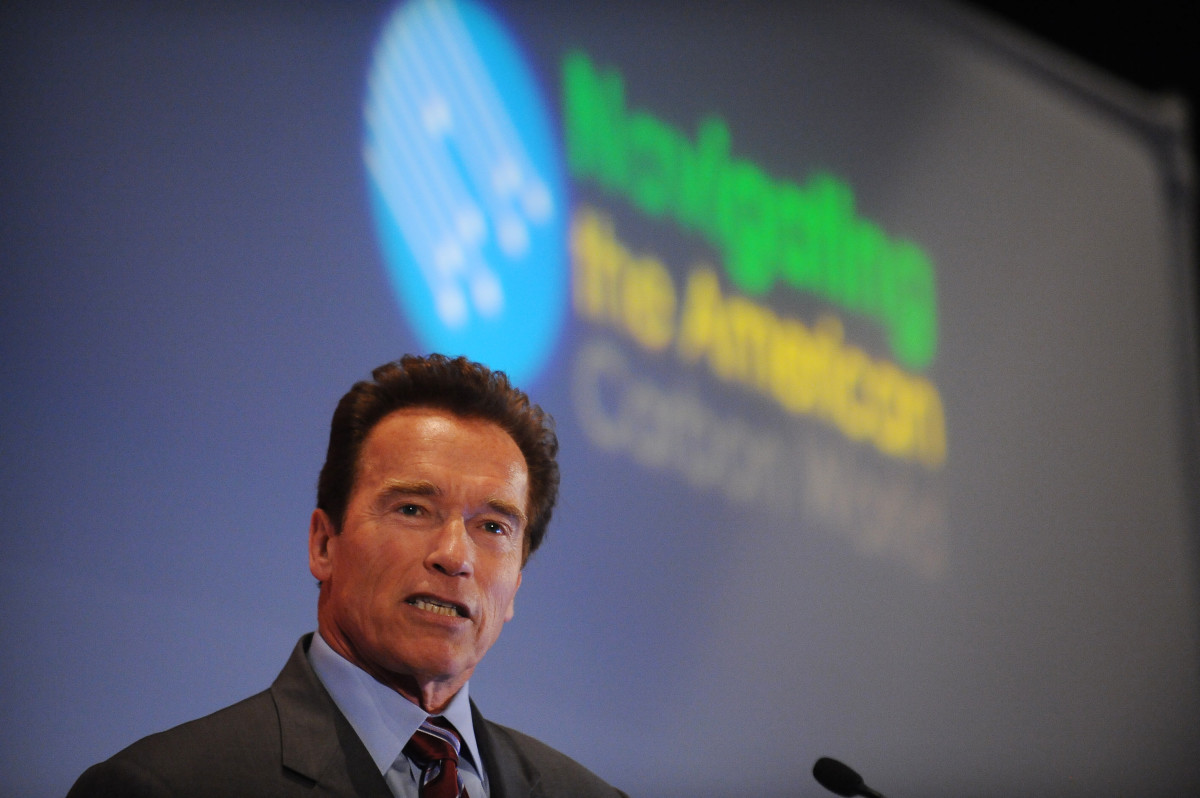
Arnold Schwarzenegger
- Born: July 30, 1947
- Education: Santa Monica College, UCLA Extension, University of Wisconsin–Superior (BBA)
- Source of wealth: Investments, real estate, restaurants and entertainment
Body Builder. Action hero. Governor.
Say what you will about Schwarzenegger and his many incarnations; there's no denying that he rose to worldwide fame from very humble beginnings — going from 'roids to riches in the process.
The future "Terminator" star had a rough childhood in the small Austrian neighborhood where he was born. Claims of physical abuse by his father were one reason he made moving to America an early goal. As a competitive bodybuilder, he had the chance to make that move in 1968.
His success as a muscled poser led to endorsement deals, a book for would-be bodybuilders, and a role in an influential documentary about the sport, "Pumping Iron."
Bit movie parts followed, with a big break coming by way of the lead role of 1982's "Conan the Barbarian." Even greater success came with the 1994 release of "The Terminator." A steady slate of action and comedy films followed, many of them massive hits.
In 2003, Schwarzenegger was elected governor of California following the recall of his predecessor. He ultimately served until 2011.
Forbes estimated his net worth as $1.1 billion.
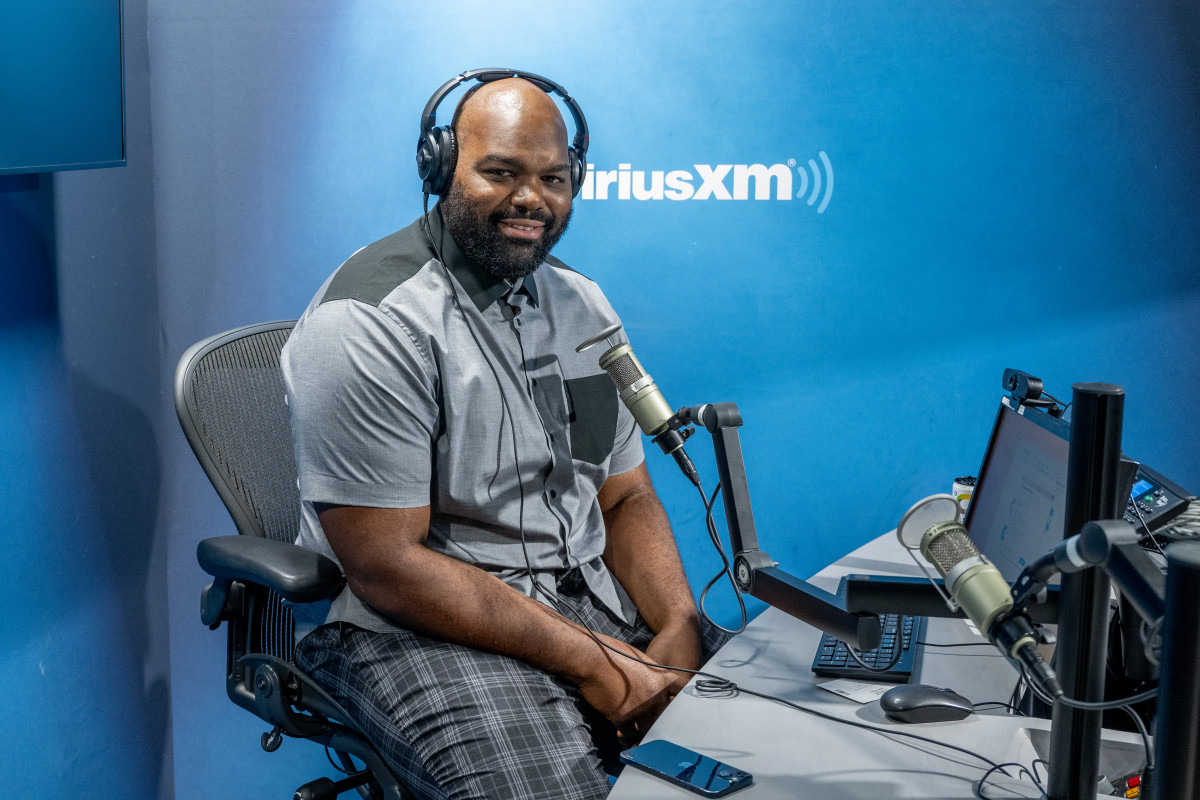
Michael Oher
- Born: May 28, 1986
- Education: Univerisity of Mississippi (BA)
- Source of wealth: Professional football
A former offensive lineman for the Baltimore Ravens, Oher's early life was chronicled in the hit movie "The Blind Side," starring Sandra Bullock and based on Michael Lewis' best-selling book of the same name.
Born in Memphis to a family of 12, Oher's mother was a crack cocaine addict, and his father was in and out of prison. His early life alternated between homelessness and foster homes.
In 2004, while a student at Briarcrest Christian School in Memphis, he was invited into the home of Leigh and Sean Tuohy — parents of two of Oher's classmates — and they later legally adopted him. Their support helped the young man parlay his football skills into a scholarship at the University of Mississippi.
A standout player in college, he was drafted by the Ravens in the first round of the NFL's 2009 draft.
In 2023, Oher co-authored "When Your Back's Against the Wall: Fame, Football and Lessons Learned Through a Lifetime of Adversity."
Oher recently spoke out about how he was portrayed in "The Blind Side," worrying that it might negatively affect his children. In a 2024 interview with USA Today, Oher said he hopes to stop other children from following in his footsteps through his Nashville-based foundation and a new partnership with Lipscomb Academy.
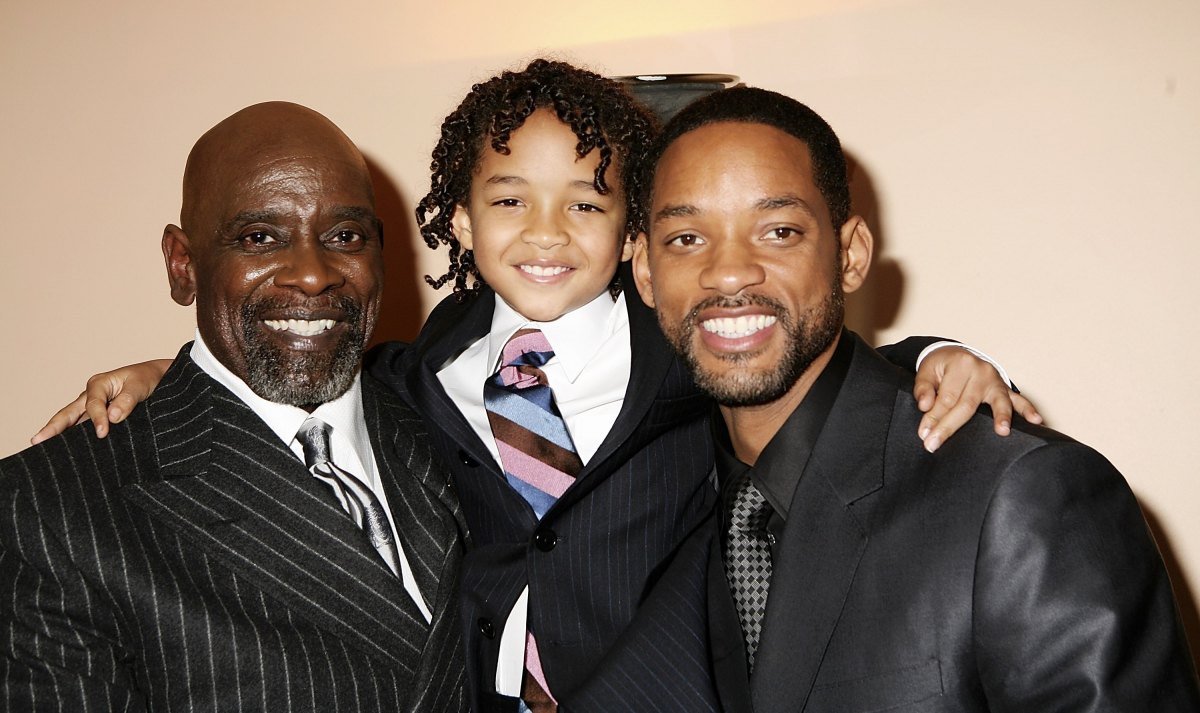
Chris Gardner
- Born: February 9, 1954
- Education: No formal education
- |Source of wealth: Investing; sale of the investment firm he founded
Gardner's life story is dramatically retold in the Will Smith movie "The Pursuit of Happyness." He was raised by a single mother but forced from his home as a young man as a result of her stormy relationship with an abusive boyfriend. At one point, he was placed in a foster home after his mother was arrested and convicted of trying to kill her boyfriend by setting fire to his house.
Later, Gardner joined the Navy, and while working as a medical supply salesman, married and had a child.
Fatefully, after seeing a well-dressed man in a sporty Ferrari, Gardner asked what he did for a living. Bob Bridges answered that he was a stockbroker and offered to help Gardner with interviews for training programs at some of New York's largest brokerage houses.
He was accepted into a training program at E.F. Hutton, but his spate of bad luck returned quickly. The man who hired him was fired, and the program was no longer open to him. Soon after, he was arrested and had to spend a brief stint in jail for having amassed $1,200 in parking tickets. He returned home to discover that his wife had left him.
Gardner earned a position in the training program at Dean Witter Reynolds, passed the licensing exam, and was offered a position by Bear Stearns in San Francisco. But he was still destitute and homeless, forced to work the job by day then search for a hot meal and a safe place to sleep after getting his son from daycare each day. He later was admitted to a homeless shelter and, throughout the ordeal, never let on to his co-workers that his personal life was in such dire straits.
Hard work eventually paid off. Gardner was finally able to provide for himself and his son, and his growing success led to the formation of his firm, Gardner Rich & Co., in Chicago. (Gardner started with a mere $10,000 in seed money and ran the firm from his apartment.) The firm grew and was later sold in a multimillion-dollar deal. Gardner became CEO of a new venture, Christopher Gardner International Holdings, and his net worth is an estimated $70 million.
In talking about the man he learned to portray in "The Pursuit of Happyness," Smith said, "Chris represents the American Dream."

Tyler Perry
- Born: September 13, 1969
- Education: GED and honorary doctorate from Tuskegee University
- Source of wealth: Entertainment (film and television)
With the regularity of an alarm clock, writer-actor-director Tyler Perry has churned out countless movies and television shows boasting his name above the titles. Among the most successful African-American filmmakers of all time, Perry's road to being a media mogul was far from smooth.
Born in New Orleans, Perry has described being beaten by an abusive father and molestated at the hands of various men and a female friend of his mother.
Never finishing high school (he earned a GED), Perry credits a motivational segment on Oprah Winfrey's show for inspiring him to take up writing. The result is a journal adapted into a stage musical, "I Know I've Been Changed."
Perry financed a live production at a church community center with his life savings. Its success led him to tour an urban theater circuit with it and other plays. Over 15 years, ticket and merchandise sales netted him close to $150 million.
Stage success led to movies, and the $5.5 million budget that backed "Diary of a Mad Black Woman," the film debut of his popular Madea character, netted a domestic gross of more than $50 million. Subsequent movies have mostly had similar success, and two sitcoms bearing his name are in heavy rotation on the TBS cable network. Perry's success and hands-on approach led him to build his own studio and soundstage in Atlanta.
Critics may not speak highly of the work he produces, but no one can begrudge Perry's success.
What is the American Dream? Is it still possible to achieve?
While every person might have their own definition of the "American Dream," it is essentially the idea that no matter where someone comes from and whether they are rich or poor, formally educated or self-taught, they can achieve success.
For a more formal definition, the Oxford English Dictionary defines the American dream as “the ideal that every citizen of the United States should have an equal opportunity to achieve success and prosperity through hard work, determination, and initiative.”
As each of the examples above shows, it is possible to build wealth and success, even when a person comes from a very modest background. Still, many people say that in the modern economic climate, achieving the proverbial American Dream is increasingly out of reach, even in the country where the idea was born.
Related: The 10 best investing books (according to stock market pros)




